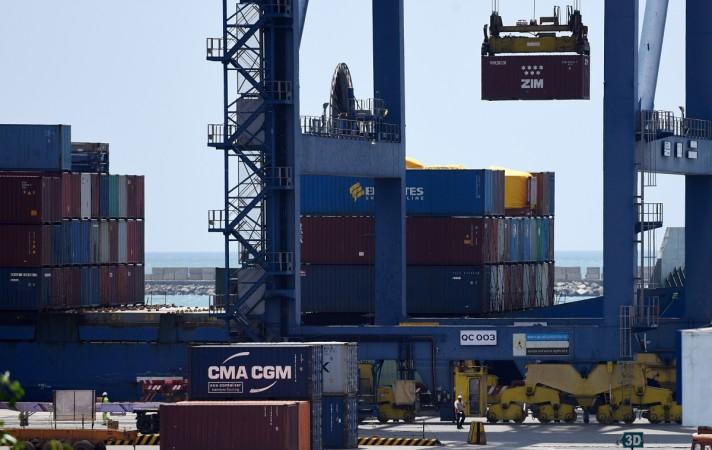
Over two months after the rollout of the Goods and Services Tax (GST) regime in July, the order books of exporters are said to have taken a hit with estimates pegging the impact to up to 15 per cent across industries and product categories, said a report by financial daily Business Standard (BS) on Saturday.
Exporters' body Federation of Indian Export Organisations (FIEO), the large drop was for export orders meant to be delivered until October.
FIEO Director-General Ajay Sahai said that the dip was registered over a period of two months since July, and was largely on account of exporters foregoing orders due to lack of credit.
Exporters were forced by the liquidity crunch to use available resources to tide over problems in managing their business operations rathen fulfilling their overseas orders.
Executive Director at Engineering Exports Promotion Council (EEPC), Bhaskar Sarkar, corroborated this by saying that the percentage hit was higher for exporters handling products with a longer gestation period, the BS report said.
Refunds on duties paid upfront by exporters meant that they had to wait till their refunds were processed and released. "Merchant exporters, as well as those whose products require 2-3 months to be sourced, processed and shipped, have been hit hard owing to their capital being tied up longer," Sarkar told BS.
Delayed refunds spark liquidity crunch
Exporters were earlier allowed duty-free import of goods that are used for the manufacturing of export products. However, under the GST, they would have to pay the duty upfront and apply for refunds later.
Experts quoted in the report said that the liquidity crunch has led to higher costs for merchant exporters. Their costs have risen by up to 1.25 percent (Freight On Board value) following the implementation of the new tax regime, according to estimates.
The figure is rising as late refunds pinch smaller players hard, while larger entities face difficulty in streamlining operations, said the report, quoting experts.
Exporters have continued to point out that the difficulties they face in getting their refunds have not abated. They have alleged that since the GST rollout, refunds from state governments for taxes paid under the Duty Drawback Scheme have stopped.
The BS report quoted the EEPC attributing this mainly to the refund process being delayed due to the government extending the date of filing of refund documents. The filing of documents for GSTR 1, GSTR 2 and GSTR 3 have been extended to July 10, October 31 and November 10, respectively, the EEPC said.
This means that the refunds for the month of July will be available only in the third week of November at the earliest. Similarly, exports refunds for August will be pushed back to December and this is expected to have a cascading impact on the September refunds, the BS report said.

















